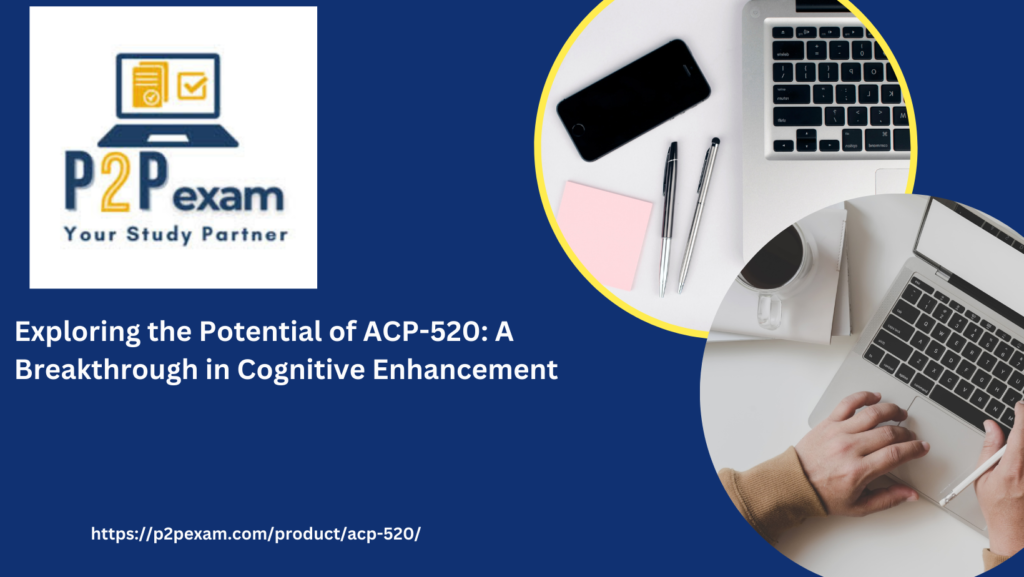In the rapidly evolving world of nootropics, where new compounds are continually being researched for their potential to enhance cognitive function, mood, and overall mental well-being, ACP-520 has emerged as one of the more exciting prospects. Known for its unique interaction with the brain’s chemistry, ACP-520 promises to revolutionize cognitive enhancement, but it also raises questions regarding safety, long-term effects, and its true efficacy.
What is ACP-520?
ACP-520 is a novel compound that belongs to a class of substances known as selective serotonin reuptake inhibitors (SSRIs), though it has a unique mechanism of action that sets it apart from typical SSRIs used in clinical medicine today. Unlike standard SSRIs, which primarily target serotonin in the brain, ACP-520 works by influencing a broader range of neurotransmitters and receptors, which may contribute to its cognitive-enhancing properties.
Although still under research, ACP-520 is primarily being studied for its potential to improve mood, cognitive performance, and even promote neurogenesis (the growth of new neurons in the brain). In animal models, it has shown promising results in improving learning, memory, and attention, suggesting that it could one day become a powerful tool for enhancing cognitive function in humans.
How Does ACP-520 Work?
To understand how ACP-520 works, we first need to look at the brain’s neurotransmitter systems. Neurotransmitters are chemicals that transmit signals between nerve cells, and they play a critical role in mood regulation, learning, memory, and many other brain functions. ACP-520 acts on a variety of these neurotransmitter systems, particularly serotonin and dopamine, which are known for their roles in mood regulation, attention, and motivation.
The compound’s dual action on both serotonin and dopamine receptors might be the key to its potential cognitive benefits. By increasing serotonin activity, ACP-520 may improve mood, reduce anxiety, and even offer antidepressant-like effects. On the other hand, its action on dopamine could result in enhanced motivation, focus, and the ability to perform complex tasks more effectively.
Another exciting aspect of ACP-520 is its possible neuroprotective effects. Preliminary studies suggest that it may help protect neurons from damage and encourage the growth of new brain cells, which is particularly important for those suffering from age-related cognitive decline.
Potential Benefits of ACP-520
- Cognitive Enhancement:
One of the main reasons ACP-520 has garnered attention is due to its potential to enhance cognitive function. Studies have shown that it may improve learning, memory retention, and even overall mental clarity, making it a promising candidate for those looking to boost their mental performance. - Mood Stabilization:
As a serotonin modulator, ACP-520 could have mood-stabilizing effects, helping individuals with anxiety or depression experience a more balanced emotional state. The compound may increase serotonin levels in the brain, improving feelings of well-being and emotional resilience. - Neuroprotective Effects:
The compound’s ability to promote neurogenesis could make it a valuable tool in combating age-related cognitive decline. By stimulating the growth of new neurons and protecting existing ones, ACP-520 might help maintain cognitive function in the long term. - Increased Motivation and Focus:
Through its interaction with the dopamine system, ACP-520 may provide an increase in motivation, attention, and the ability to stay on task for extended periods. This could be beneficial for individuals with attention deficits or those seeking an edge in high-pressure work or academic environments. - Mood-Boosting:
Individuals with depressive symptoms may benefit from ACP-520’s serotonin-enhancing properties. While it is not a replacement for traditional antidepressants, it could potentially serve as an adjunct therapy or preventive measure for mood disorders.

Safety and Side Effects
Despite its promise, there are still concerns about the safety of ACP-520. As with any compound that influences the brain’s neurotransmitter systems, there are potential side effects. The most common side effects seen with SSRIs and similar compounds include gastrointestinal disturbances, headaches, fatigue, and in some cases, changes in sexual function.
Moreover, because ACP-520 is still in the early stages of research, its long-term effects on brain function, mood, and overall health are not yet fully understood. There is also the potential for interactions with other medications or supplements, so anyone considering using ACP-520 should consult with a healthcare professional, particularly if they are already taking other cognitive-enhancing substances or antidepressants.
The Future of ACP-520
The future of ACP-520 pdf dumps in the realm of cognitive enhancement looks promising but uncertain. As research continues, it will be important to determine the optimal dosage, potential side effects, and long-term safety. If further studies confirm its efficacy and safety profile, ACP-520 could become a mainstream tool in the world of nootropics, cognitive enhancement, and even mental health treatment.
Additionally, the compound may find its place not only in the supplement market but also in clinical applications, helping to address a range of cognitive and mood disorders. However, as with all emerging compounds, caution is advised until more data becomes available.
ACP-520 represents an exciting potential breakthrough in cognitive enhancement, offering a multifaceted approach to improving brain function, mood, and overall mental performance. Its dual action on serotonin and dopamine receptors, along with its potential neuroprotective effects, make it a compound worth keeping an eye on. However, much more research is needed to fully understand its mechanisms, safety, and long-term effects.
As we continue to explore the frontiers of cognitive science, ACP-520 could very well play a significant role in shaping the future of cognitive health and mental well-being. Until then, users should exercise caution and prioritize professional medical guidance before incorporating new supplements into their routine.
